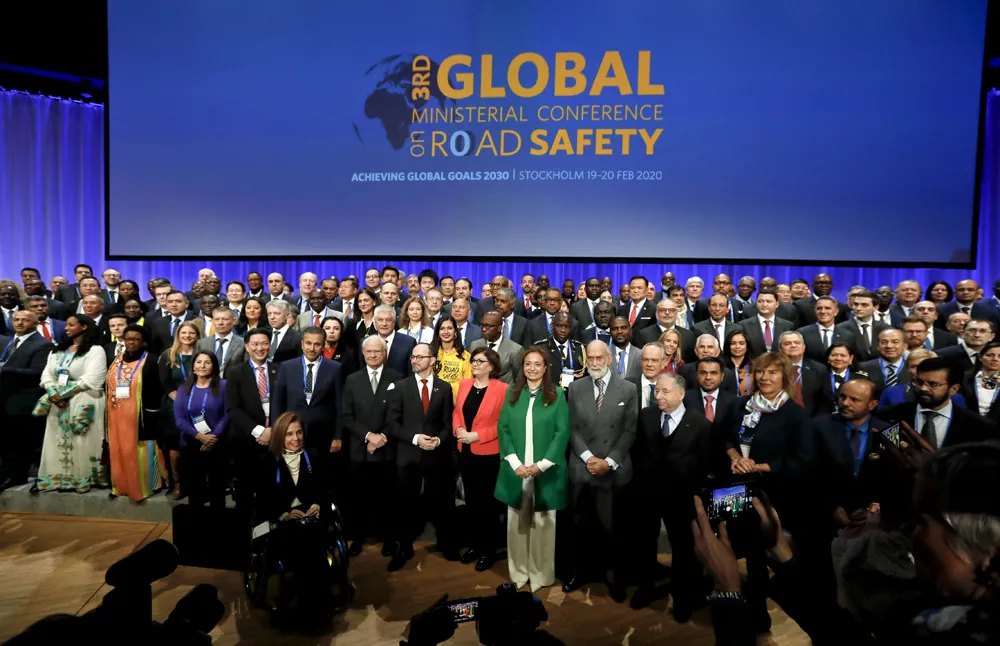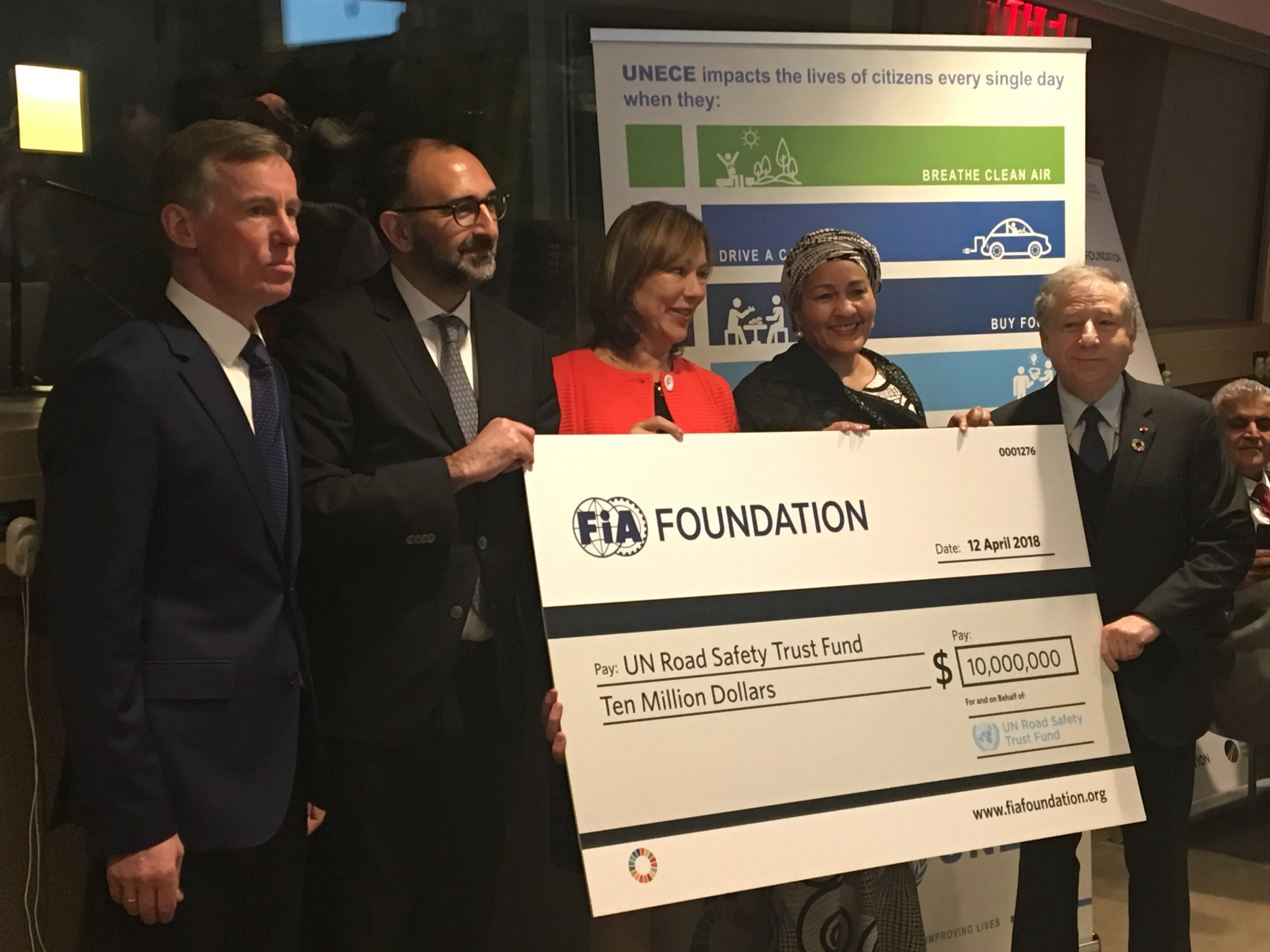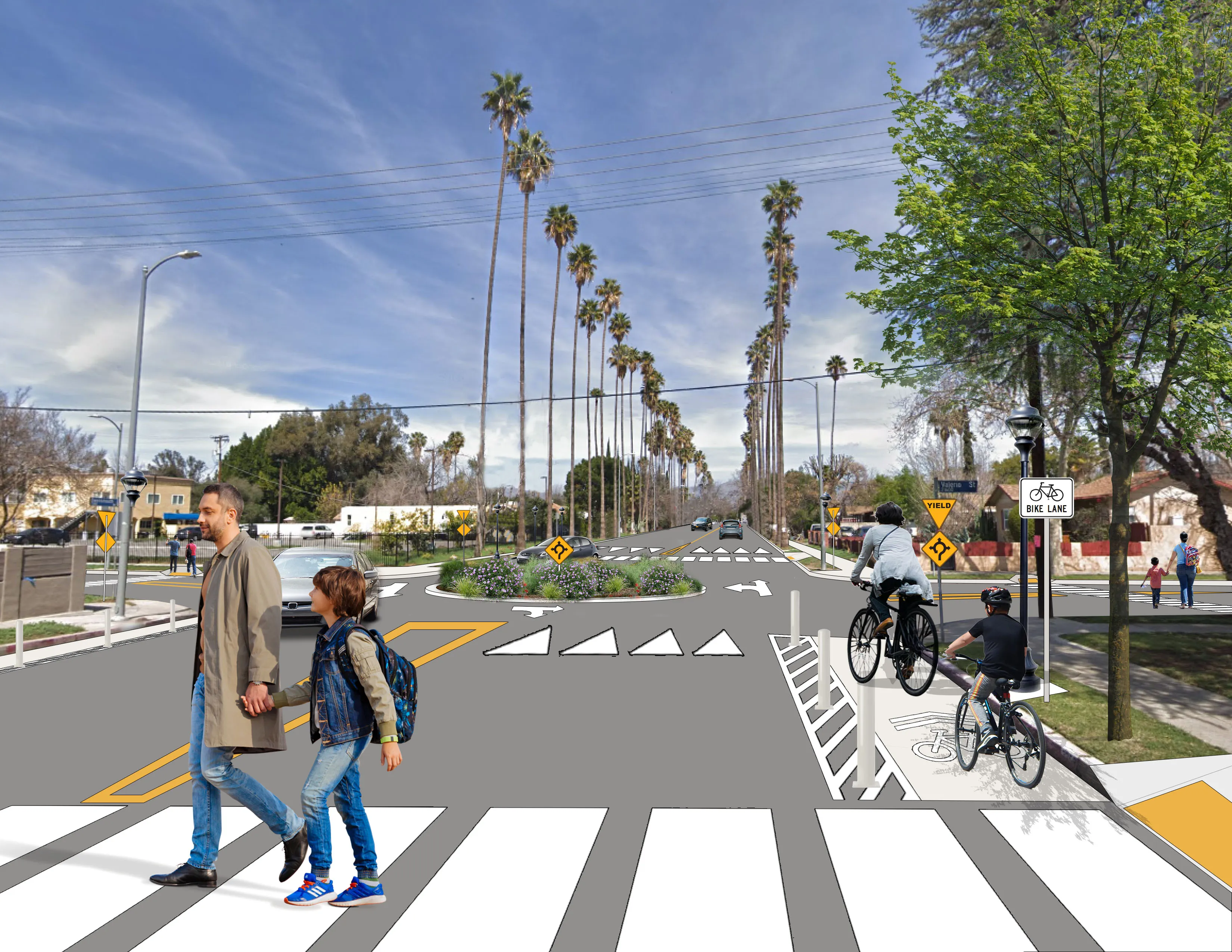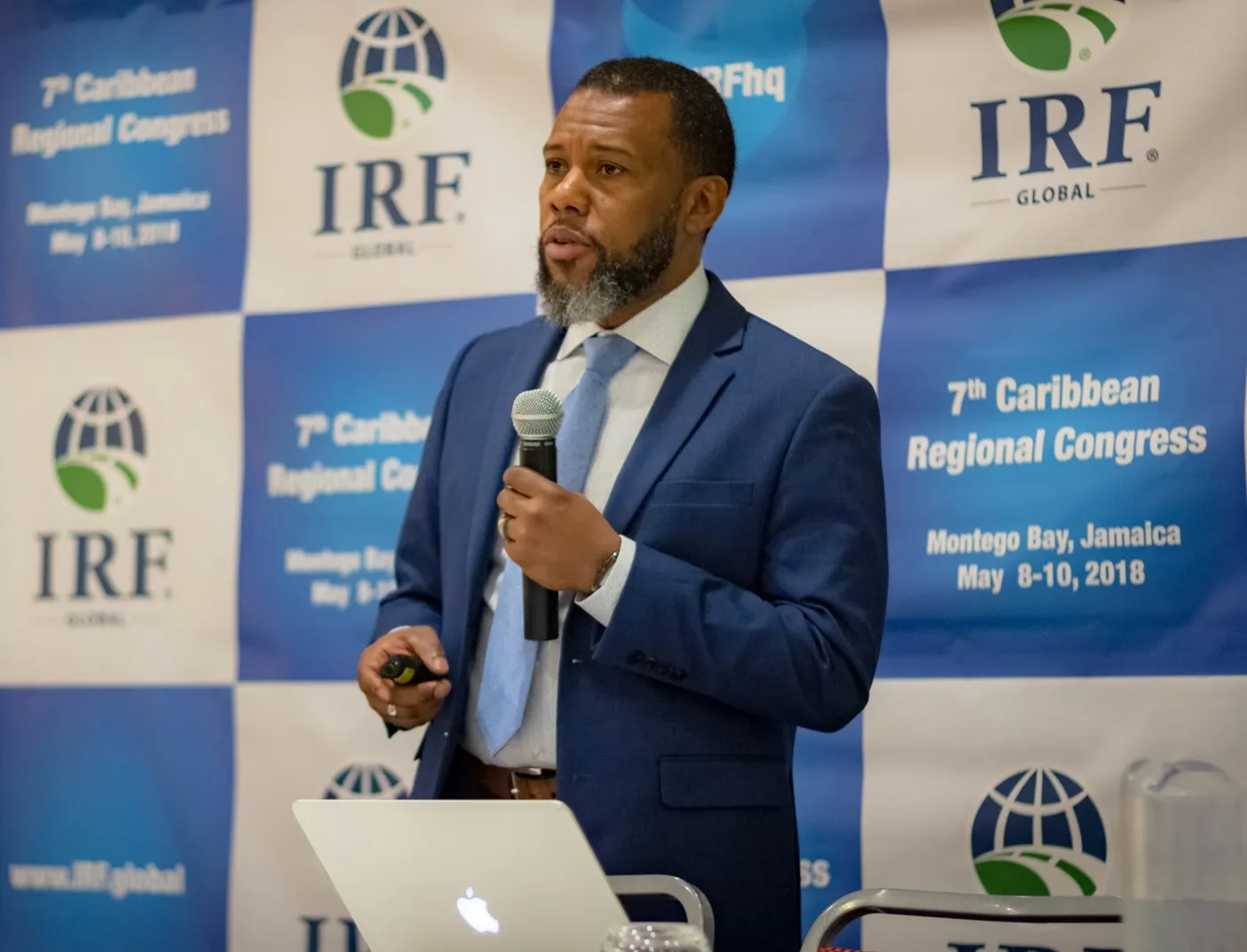
Under the theme Achieving Global Goals 2030, ministerial-led delegations from more than 80 countries attended the event co-sponsored by the World Health Organisation (WHO). In addition, other stakeholders from industry, research organisations and international institutions contributed to the discussions.
The conference was an opportunity for delegates to share successes and lessons from the implementation of the Global Plan for the Decade of Action for Road Safety 2011–2020. The goal is to chart strategic directions for global road safety up to 2030 and beyond while defining ways to accelerate action on proven strategies to save lives. The conference also provided an opportunity to link road safety to sustainability challenges.
Since its creation, the ERF has always focused a large part of its activities on road safety. During the conference, a series of interesting parallel sessions addressed essential topics related to road safety and road infrastructure.
• Sustainable Development through Vision Zero
This safe system approach, which has been widely accepted as the modern road safety strategy, has the ultimate responsibility for road safety being not with the individual road user, but with those who design, build, manage and maintain the transport system and all its components. As the representative of the European road infrastructure sector, the ERF and its members have widely contributed to the improvement of the road network and its equipment. This is done through initiatives and projects such as White Roads which make road transport safer and contribute to a more sustainable road framework.
• New Technologies for Road Safety
To a great extent, Vision Zero and road safety in general rely on innovative technology to achieve a safe transport system. The European Union is firmly committed to promoting a favourable regulatory framework. This will boost new vehicle technologies such as intelligent speed assistance and lane keeping assistance.
There is also the corresponding support from road markings and signs - new EU Directive 2019/1936 on road infrastructure safety management. The ERF is participating in expert groups at all EU levels to share industry knowledge with other stakeholders. In parallel to this is the preparation of a benchmark study, together with FNTP (Fédération Nationale des Travaux Publics) and Routes de France, on the impact of new mobility – both automated and connected - on safety and sustainability.
• Mitigating Climate Change through Road Safety
New mobility schemes and requirements will redefine the role that road infrastructure plays in the lives of citizens. To help mitigate climate change, the ERF is contributing to various projects including DURABROADS, LCE4ROADS and SustainEuroRoads EU Projects. Our work continues with our involvement in the FORESEE programme to develop a methodology for transport infrastructure authorities and managers able to anticipate, absorb, adapt and rapidly recover from natural and man-made disruptive events.
• Designing Roads for Safety
The inherent safety and protective quality of road networks which benefit all road users should be prioritised, especially for the most vulnerable. This cannot be achieved without enhanced cooperation between road authorities and the road industry. Safety assessments should be carried out, priorities must be defined and financing should be allocated for the proper maintenance, upgrade, adaptation and improvement of the road infrastructure. The ERF has participated in various projects such as RAINVISION or ROSA that focus on increasing safety specifically for the vulnerable road users. In addition, one of the most dangerous hazards is created around work zones when regular driving conditions dramatically change, jeopardising road users and workers alike. The ERF has pioneered work zone safety by creating the manual “Towards Safer Work Zones”.
The ERF fully supports the objectives of this global ministerial road safety conference highlighted in the Stockholm Declaration. Importantly, the ERF continues to be the “Voice of the European Road” for providing a safe, efficient, sustainable and modern road network for all our citizens. The conference has shown that there is an enormous amount of motivation from all parties involved, including international organisations, government, industry and non-government organisations.
A successful road safety strategy for the decade 2020-2030 will succeed only if we continue promoting sectorial partnerships to share knowledge and good practice and to build upon what is really working. To this extent, the ERF remains one of the major contributors of know-how and expertise in the topic of road safety from the road infrastructure sector in Europe.








